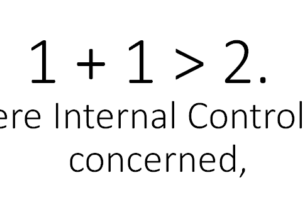Related Party transactions are one of the grayest areas in corporate governance. Yet they are so prevalent. Legislation and regulators have prescribed ways and means to monitor, regulate, approve related party transaction. One of the core principles of corporate governance is the absence of interested party/parties in the discussions where any decisions regarding related party transaction is going to be taken. It is also one of the responsibility assigned to Audit committee to review and approve related party transaction. Regulations prescribes for separate reporting of related party transactions so that authorities and shareholders can take informed view on the related party transaction.
In spite of all the safeguards, related party transactions remain one of the most misused mechanism to do corporate fraud, transfer profits, siphon funds, over invoicing, under invoicing, inventory management and so on.
Why related party transaction is the most prevalent method?
There are a number of reasons why related party transactions are one of the most prevalent method of corporate fraud/ personal benefits.
1. Trust: There is a great level of trust in directors. Trust is one of the reasons why directors are getting appointed in first place. One of the pillars of this trust is the implicit understanding that the director understand how business is getting conducted. In certain organization, management is either the largest shareholder or one of the largest shareholders and what is good for management is good for organization.
2. Similar thinking style: Likeness attracts likeness. One of the criteria used to assesses suitability for directorship is the similarlity in thinking style. In a startup, founder is not going to ask someone to come onboard who believes that idea is a failure or going to fail. He is likely to approach someone who believes in his idea and able to contribute to his vision.
3. Empathy: Directors are also owning businesses or leading businesses. They have a high level of empathy towards the way business is conducted.
4. Social acceptance: When more than one director agreed to a plan of action, other directors also compelled to agree to that line of thought.
5. Cross directorship: It can also be a case of cross directorships. Instead of involving two organization, it may have 5-6 organization, where understanding is “You don’t raise voice, I won’t raise voice”.
To ensure that governance mechanism for related party transactions are not misused, regulations requires, certain transactions to be further approved by shareholders and /or regulators.
Now the Million Dollar question is “How many shareholders outside of management group, actually vote on related party transactions?”
Consider following instances which are in public domain:
What You Should Know About The Oracle Shareholder Lawsuit
Call for action:
Inputs/ comments/ suggestion: I welcome inputs/ comments / suggestions from readers on how to approach this issue. Feel free to correct me, educate me.
Share the Article: If you like it, share it. If you share it with others, and they comment, we all will get more learned.
(Disclaimer: The views expressed constitute the opinion of the author and the author alone; they do not represent the views and opinions of the author ’s employers, supervisors, nor do they represent the view of organizations, businesses or institutions the author is, or has been a part of.)



